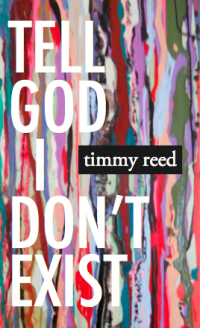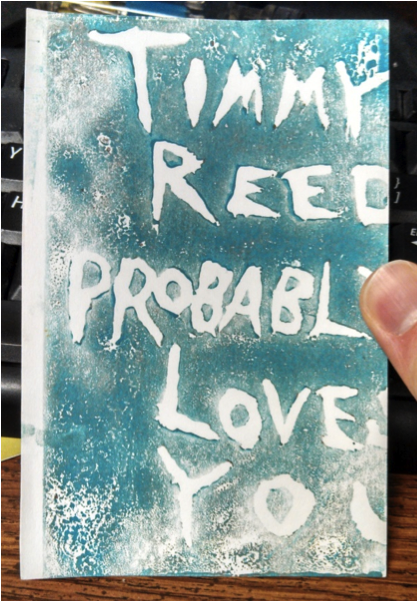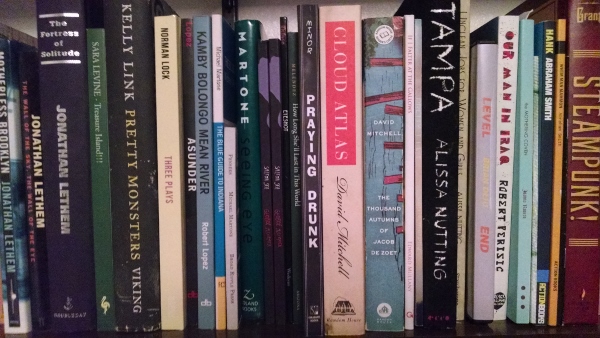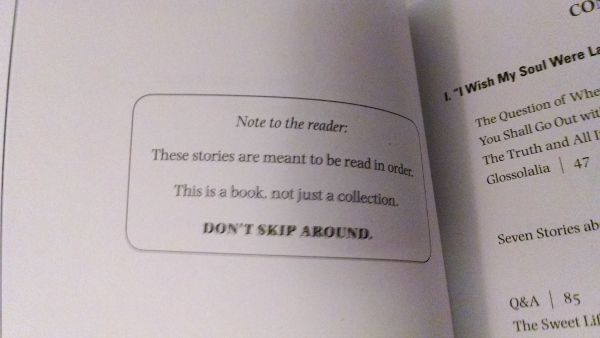Spencer Madsen’s Publishing Genius
I’m really sorry house about this.
25 Points: Webster’s New World English Grammar Handbook
 Webster’s New World English Grammar Handbook, Second Edition
Webster’s New World English Grammar Handbook, Second Edition
by Gordon Loberger and Kate Shoup
Webster’s New World, 2009
408 pages / $16.99 buy from Amazon
1. Do you guys know about all of the different types of pronouns? There are so many different types of pronouns.
2. New theory: 85% of people who claim to understand grammar actually just have three to four grammar pet peeves they won’t shut up about.
3. Should I be embarrassed that while I did know the name for the “perfect” tense, I didn’t know that the other tense was called the “progressive” tense. I should definitely be embarrassed, right?
4. And don’t even get me started on prepositions.
5. I dare you to get through the Misused Words and Expressions section without your stomach dropping in panic at least once. Don’t worry, you probably didn’t confuse “awhile” and “a while” in your MFA application packet.
6. If you think you might have confused those words in your MFA application packet, just stare at them for a long time. Pretty soon they won’t even seem like words anymore.
7. The Commonly Misspelled Words section made me want to have all of my friends over for an impromptu spelling contest. (This is maybe related to why I have so few friends.)
8. In order to really understand grammar—for it to really stick—you have to learn the names of things. This seems like a metaphor for something.
9. I can never remember anyone’s name when I meet them. Is this why I’m bad at grammar?
10. Mindy Kaling seems to think it just makes me rude: “I don’t think it should be socially acceptable for people to say they are “bad with names.” No one is bad with names. That is not a real thing. Not knowing people’s names isn’t a neurological condition; it’s a choice. You choose not to make learning people’s names a priority. It’s like saying, “Hey, a disclaimer about me: I’m rude.”
March 6th, 2014 / 4:07 pm
Tunnel: Fourteen Thoughts On Writing

Tunnel
1) This is a tunnel I walk nearly every day. It connects via underground one office building (where I work) with another office building (where I bring things). I’m not sure how long the tunnel is, but I imagine about a football field or Walmart parking lot in length. There’s a narrowness and low ceiling height that’s suffocating. I’ve imagined the tunnel dug by a giant beaver consisting mostly of gnashing yellow teeth, the beaver’s body large enough to eat its way through the space I walk daily. Someone you probably know and want to slap would call the tunnel, “Lynchian.”
2) When I walk the tunnel I think about writing and submitting writing because there’s something about the tunnel that leads to a metaphor I don’t want to talk about directly.
A few other things about the tunnel:
I’m panhandling bad advice on other social media sites today. Do you want my bad advice? It will be free of charge, but only for today.
In memory of Robert Ashley, 1930–2014

I first learned about Robert Ashley through Peter Greenaway, thanks to his Four American Composers series. I rented all four videos because I was interested in John Cage and Philip Glass. I didn’t know who Meredith Monk was, or Robert Ashley.
As it turns out, the episode on Ashley interested me the most. I didn’t understand the opera being discussed, Perfect Lives, but I knew I had to hear and watch the whole thing. I took to the internet and discovered that I could order it directly from Lovely Music, on VHS. I did so. It cost me $100—but I had to hear it.
Few people I knew at the time had ever heard of Robert Ashley. When I moved to Illinois and met Mark Tardi and Jeremy M. Davies, we bonded in part over our shared love for Perfect Lives, “an opera for television” made in the late 1970s and early 1980s. It’s still not widely known. It’s still never been broadcast in its entirety in the US. But I’m not alone alone in regarding it one of the greatest operas and long poems in the English language. (John Cage wrote of it: “What about the Bible? And the Koran? It doesn’t matter. We have Perfect Lives.”)
25 Points: Tell God I Don’t Exist
 Tell God I Don’t Exist
Tell God I Don’t Exist
by Timmy Reed
Underrated Animals Press, 2013
92 pages / $12.00 buy from Underrated Animals Press
1. The album Shrines by Purity Ring is easily in my top five albums from the past five years. When I hear the lush electronic wooziness of songs like “Fineshrine” I feel like I’m being hugged—enwrapped in a surreal, dreamy blanket of sound.
2. When I read Timmy Reed’s Tell God I Don’t Exist I get a similar sensation.
3. These stories are hazy fever dreams, ecstatic jokes, deviant fairy tales.
4. When describing this collection the word twee comes to mind.
5. Twee is so often taken as derogatory, but this collection is saccharine sweet in a good way.
6. There’s a lot of handholding in these stories.
7. There’s a lot of candy, too:
“We eat licorice shoelaces and wayward mosquitoes, but we mostly eat sweets. We scarf cannolis. We munch crullers. We visit the snowball stand in bare feet and sleep next to pitchers of lemonade. We grow fat on melancholy pastries. We sweat sugar in the sun. We speak, through a saccharine haze, of taking vitamins. We speak in the past tense of the future as if it were part of a childhood dream.”
8. I found this inside my copy of the book:

9. I really hope everyone’s copy comes with a print that tells them that Timmy Reed (in all likelihood) loves them, because it’s true.
March 4th, 2014 / 3:09 pm
ALL SEVEN SEASONS OF “MELROSE PLACE” IN SCREENSHOTS
One of the first “essays” I ever wrote in elementary school was in response to the heavy question: “What do you want to be when you grow up?” I am not sure this translates correctly in English, but there was a clear indication in the teacher’s inquiry this was about our professional aspirations. I correctly predicted at the age of six that I would move to “California, Beverly Hills” (which is one place) and inevitably be added to the cast of the epic tele-universe “Beverly Hills 90210″ Aaron Spelling produced. Without irony, I consider my watching of this show about bratty teenagers dealing with their brattiness as a key paragon in my successful and organic learning of the English language.
Some good reasons to submit to a press or magazine are: you like the press or magazine, the publish things you like, they will give you money, they have great covers, they have great designs, they will promote you as a writer, they will make you feel good about yourself, and they will reject your thing if it’s not ready.
Here’s another one I don’t see discussed as often: they will edit your work well and make you look good. (This is rare.) (And here is the most important, never-mentioned advantage: You learn from being edited. My novel’s editor cut a whole bunch of dialogic tags, i.e., “he said”s, from my book. I learned that I was using far too many. Now I’m using fewer. It feels great.)
Let’s talk about what we’ve learned from our editors.
Organisms that do not exhibit recursion in communication still have the capacity for recursion
Hauser, Chomsky and Fitch 2002 (HC&F hereafter) incited a flurry of discussion in response to its distinction between the faculty of language in the broad sense (FLB) and the faculty of language in the narrow sense (FLN): “FLB includes a sensory-motor system, a conceptual-intentional system, and the computational mechanisms for recursion, providing the capacity to generate an infinite range of expressions from a finite set of elements. We hypothesize that FLN only includes recursion and is the only uniquely human component of the faculty of language.” (HC&F, 1569). The implication is that the observable structural differences between human language and other forms of animal communication can be explained by the exclusivity of recursion to human language. This statement also operates on the assumption that recursion is a universal trait of human language.

Image courtesy of this site.
Daniel Everett’s work with the Pirahã tribe in the Amazon presents evidence contrary to HC&F’s claims. Everett found that the Pirahã language lacked embedding, at least representational recursion1: “Pirahã does not make use of CP-embedding or recursive possessors.” (Kinsella 2010: 188)2 Nonetheless, they can, through other linguistic and pragmatic means, express concepts which in other languages would be expressed recursively (ibid.). Everett says “..Pirahã most certainly has the communicative resources to expresses clauses that in other languages are embedded…” (Everett 2005: 631) Therefore, though Pirahã does not seem to have recursion, it is by no means restricted in its expressive capacity, countering the claims of Hauser, Chomsky and Finch 2002 regarding “the rich expressive and open-ended power of human language (based on humans’ capacity for recursion),” which capacity they claim animal communication lacks because it does not exhibit recursion (HC&F, 1570). If Pirahã’s expressive capacity is not hindered by its seeming lack of recursion, then perhaps recursion is not in fact a distinguishing feature of human language (Kinsella 188), or at least not the only one: perhaps it can be found in non-linguistic and non-human domains.
Image courtesy of HC&F 2002.
This may in fact the case. HC&F 2002 themselves speculate that recursion may be evident in animal navigation and kinship cognition, and songbirds have exhibited the capacity to comprehend recursive hierarchical syntactic structure (Abe & Watanabe 2011; Gentner et al 2006). Bengalese finches exposed to an artificially-constructed, center-embedded birdsong grammar “revealed a striking sensitivity to the recursive structure of the grammatical strings [they] were exposed to.” (Bloomfield et al 2011) The finches responded equally to familiar and novel grammatical strings, but decreased in response when presented with ungrammatical birdsong strings (ibid.). This indicates that recursion is not necessarily specific to humans, and that it is only sufficient, not necessary for human language, as Everett’s work with the Pirahã indicates. Therefore, since recursion as a unique feature of language is questionable, it would be fruitful to comparatively investigate the other possibly-distinguishing properties of language— the syntax-semantics interface particularly, as well as the lexicon and the nature of phrasal categories (Kinsella 2010).


